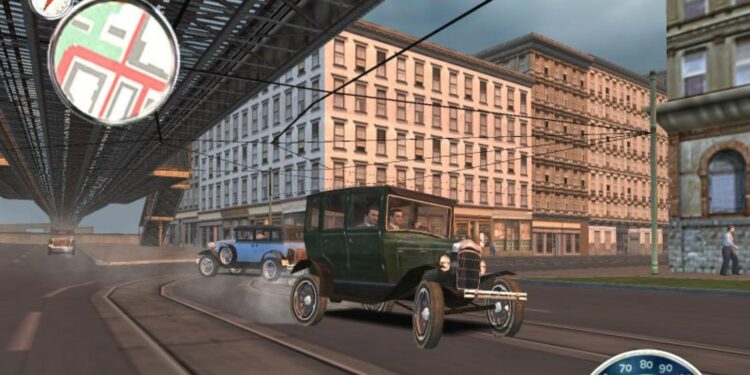Video games offer a unique medium for storytelling, an immersive experience that allows players to step into different worlds, roles, and realities. Among the vast range of genres, mob, and mafia-themed games hold a distinctive allure. The thrill of venturing into the shadowy underworld, experiencing power struggles, and navigating the precarious moral landscape, makes these games uniquely captivating. They offer a rare opportunity to embody characters that tread the lines of law and morality, providing a thrilling escape into the fascinating realm of organized crime. The popularity of this genre signifies not just the thrill of the game’s mechanics but also the allure of the narratives they weave.
The Draw of the Genre
Mob and mafia video games are not just about the adrenaline rush of high-speed chases or strategic combat; they tap into a more profound aspect of gaming — the captivating power of narrative and character development.
One of the most enthralling elements in this genre is the rich narratives that these games offer. Inspired by real-world stories, historical events, and classic crime cinema, they provide players with a deep, often convoluted plot that unravels throughout the game. From turf wars to intricate heists and family betrayals, these narratives draw players into the heart of the underworld, sustaining their interest and driving the gameplay.
Equally important is the complex character development found in these games. Players often take on roles of characters who are morally ambiguous, walking a tightrope between right and wrong. These are not your typical heroes; instead, they are deeply flawed individuals, often torn between loyalty to their crime families and a sense of justice. This complexity adds depth to the characters and a more profound level of engagement for the players.
The intense action sequences are another key attraction of mob and mafia games. Be it high-speed car chases, strategic shoot-outs, or hand-to-hand combat; these games keep players on the edge of their seats with their fast-paced gameplay. The action is often intertwined with the game’s narrative, providing context to the battles and making victories even more rewarding.

Lastly, the morally challenging decisions that players have to make in these games add another layer of intrigue. These decisions often have significant consequences on the narrative progression, forcing players to think and weigh their choices. It’s this combination of action, strategy, and moral dilemma that sets mob and mafia games apart, making them an immersive and thrilling gaming experience.
The Underworld’s Finest: Finest-in-Class Mob and Mafia Video Games
When it comes to mob and mafia video games, certain titles have set a high bar, captivating players with their immersive narratives, dynamic gameplay, and authentic portrayal of the criminal underworld.
The Godfather Series
This EA series, inspired by the legendary film franchise, takes the player deep into the heart of the Corleone family’s criminal empire. With its nuanced characters, atmospheric 1940s-50s New York setting, and storyline interwoven with key moments from the films, “The Godfather” series provides an unprecedented level of immersion. As you climb the ranks of the organization, each decision you make reverberates through the family, underscoring the weight of your actions and the high stakes of the mafia world.
Mafia Series
Developed by 2K Games, the “Mafia” series has become a cornerstone of the genre, acclaimed for its compelling narratives and meticulous attention to historical detail. Each installment of ‘the most successful Czech game ever’ transports players to a different era of organized crime, from the Prohibition era of the 1930s to the cultural upheavals of the 1960s. The deeply immersive narratives, combined with engaging gameplay mechanics and a vivid, historically accurate backdrop, make the “Mafia” series a must-play for any fan of the genre.
Grand Theft Auto Series
While the “Grand Theft Auto” (GTA) series from Rockstar Games is not solely focused on the mob, it frequently explores organized crime within its expansive open-world environments. Titles like “GTA: Vice City” and “GTA IV” have storylines that revolve around various criminal organizations, including the mafia. Known for its sandbox gameplay, GTA offers a unique blend of action, exploration, and narrative-driven missions, all set in richly detailed, vibrant cityscapes that bring the underworld to life.
Yakuza Series
Moving away from the traditional American mafia setting, SEGA’s “Yakuza” series takes players into the heart of Japan’s organized crime syndicates. The game’s vibrant, bustling urban settings offer a stark contrast to the shadowy underworld of the yakuza. Known for its rich narrative, dramatic action sequences, and diverse gameplay elements – from street fights to running a business and even karaoke – the “Yakuza” series provides a refreshing and unique perspective on the genre.
Each of these games offers a distinctive take on the mob and mafia world, inviting players to delve into the gritty realities of organized crime. Despite their differences in setting, characters, and gameplay mechanics, they share a common thread: an exploration of the human condition under extreme circumstances, a theme that continues to captivate and resonate with players around the world.
The Role of Gambling in Mob/Mafia Video Games
In the gritty realms of mob and mafia video games, the dazzling, high-stakes world of gambling often takes center stage. It’s an element that brings authenticity and depth, enhancing the narrative and gameplay experience. Notably, this theme has grown in prominence with the evolution of the gaming landscape, most notably with the emergence of reputable online casinos in the digital world.
In games like the “Grand Theft Auto” and “Mafia” series, gambling is skillfully interwoven into the story, presenting not just an intriguing gameplay mechanic but also a potent narrative tool. The echo of this trend in the real world is fascinating, as seen with the increasing prevalence of online casinos. These digital platforms have revolutionized the way people engage with gambling activities, much like how video games have transformed the entertainment industry.
From a gameplay perspective, gambling also provides players with engaging mini-games and potential sources of in-game revenue. Whether it’s the thrill of blackjack in the “Red Dead Redemption” series, the risky allure of poker in the “Mafia” series, or the slot machines in the “Yakuza” series, these gambling instances offer a welcome diversion, all while immersing players deeper into the game’s universe.
However, the role of gambling extends beyond narrative and gameplay mechanics; it serves as a stark reminder of the moral ambiguities inherent in the world of organized crime. The element of chance that defines gambling parallels the uncertainties faced by the characters in their illicit endeavors, reinforcing the precarious nature of their world.
The Impact and Influence of Mob/Mafia Video Games
Mob and mafia video games have left an indelible mark on the gaming landscape. Their emphasis on complex narratives, character development, and morally ambiguous choices has raised the bar for storytelling in video games. Titles like “The Godfather” and “Mafia” have shown that video games can offer narratives as rich and compelling as those found in films and literature – although not everyone would agree on that idea.
Moreover, these games have pushed the boundaries of what players can do in the game world. The sandbox gameplay of the “Grand Theft Auto” series, for instance, has influenced numerous open-world games, inspiring them to provide players with a similar level of freedom and a variety of choices.
Culturally, these games have also shaped the perception of the mob/mafia genre, contributing to the ongoing fascination with the criminal underworld. They provide a unique, interactive medium through which players can engage with themes of power, loyalty, and moral ambiguity.


















